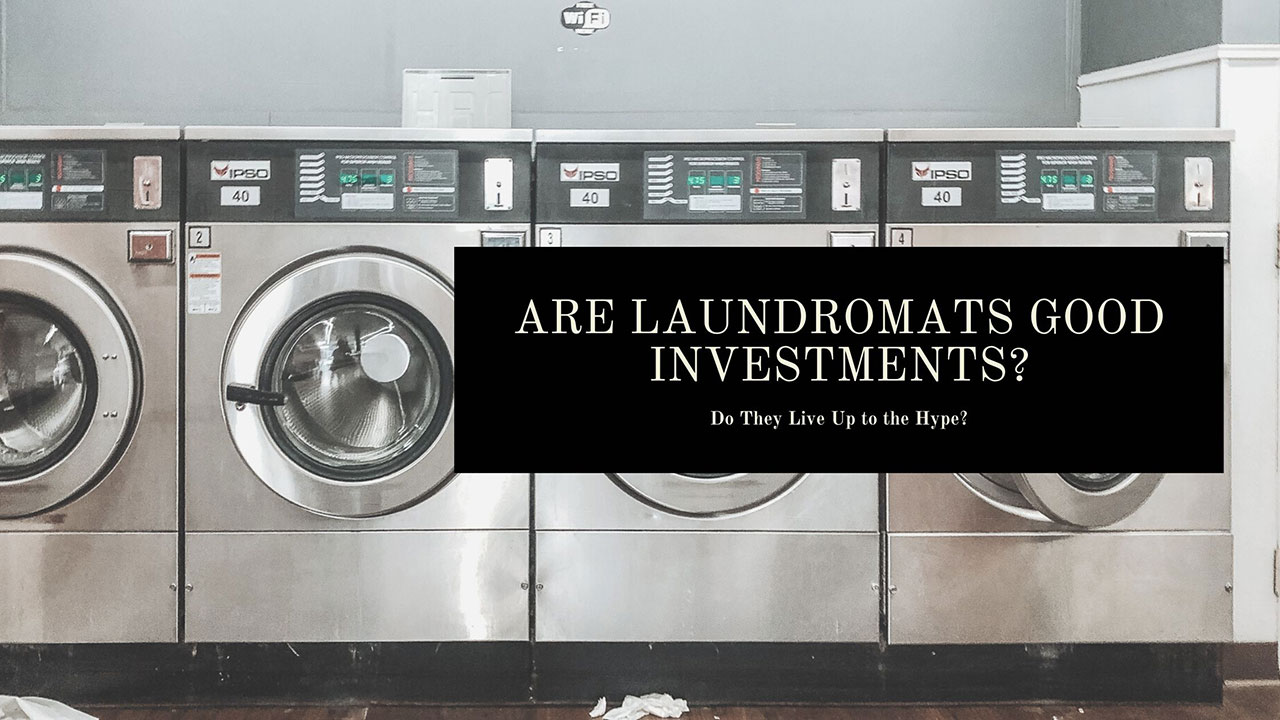This is a sponsored post by Cents. Find out what Cents can do for your laundry business here. All reviews and opinions expressed in this post are based on my personal view.
The common narrative in laundromat industry circles is that laundromats are a great source of passive income. The story goes, all an owner needs to do is collect quarters once a week and the business will basically be an ATM machine spitting out cash. The question is, is that still true? Was it ever true? And, most importantly, are laundromats still a good investment?
Laundromats are a great investment for any investor looking for a business that is stable, high cash-flow, and simple. Laundromats are essential businesses that customers use on a recurring basis. They produce a 20-25% cash flow. Laundromats have no inventory, few employees, and customers pay up front making them simple businesses.
The Best Small Business in America
I made a video of 10 reasons laundromats are the best small business to own. You can watch that video below, but I want to highlight 3 main reasons why laundromats are the best businesses you can own.
1. Laundromats are stable businesses
Every person has a few essential needs to maintain a basic level of life, and without them, the quality of life dramatically decreases. Those essential needs include food and water, shelter, and clean clothes. Laundromats provide essential clean clothes to their customers. The essential nature of clean clothes ensures an ongoing need for a way to wash clothing no matter the state of the economy or what is going on in the world.
Every person, family, or household maintains a cadence of laundry, whether it be weekly, monthly, or more sporadically. This rhythm provides a constant, ongoing, and somewhat predictable revenue for most laundromats. This constant stream of income gives laundromat owners the ability to have reliable cash flow to support the business and to provide a return on their investment.
2. Laundromats produce high cash-flow
Laundromats are valued based on a multiple of the net income they produce. Net income is the amount of money that is left after paying off all business expenses. The multiple that is used to purchase a laundromat typically ranges between 3.5-5 times the net income. As a result, the typical return on investment is between 20%-28% (5 times the net income and 3.5 times the net income, respectively).
The cash flow from a laundromat, then, is derived from the performance of the business. Not only can a buyer acquire a laundromat with a built-in 20%-28% return on their investment, but cash flow can also be increased by improving the performance of the business, managing the business more efficiently, marketing the business, and more!
One of the tools available to laundromat owners to help improve the performance of the business and manage the business better is Cents, a solution that helps laundromat owners grow, manage, and understand their laundromat businesses. The increase in the availability of tools like Cents available to laundromat owners makes it much easier to make increasingly sophisticated business decisions with ease in order to increase cash flow.
3. Laundromats are relatively simple businesses
As far as businesses go, laundromats are on the simple end of the spectrum. Laundromats are not passive, which is the common narrative professed by some in the industry. In fact, they’re not always easy businesses, either. Whenever you’re dealing with a business or interacting with other people there are bound to be problems and complexities. Laundromats are no exception to that.
However, laundromats have a few qualities that make them much simpler (read simpler, not necessarily easier) to operate than most other types of small businesses. First, laundromats generally don’t carry too much inventory, if any at all. There is no purchasing large amounts of inventory upfront to store, display, and sell. Contrast this to a convenience store or liquor store, where those owners need to purchase inventory upfront and wait for customers to purchase it to recoup their money and a profit.
Second, laundromat customers generally pay upfront. This means there is no invoicing, following up on missed payments, tracking down delinquent clients, etc. This makes things very simple for the owner. In addition, laundromats are usually cash businesses. Even when a card payment system is present, the payment systems and integrated business solutions, such as Cents, make processing customer payments simple and easy.
Third, laundry businesses usually have relatively few employees. Since customers generally do their own laundry in a self-service laundromat, and few employees can process a lot of laundry for a wash-and-fold or pickup and delivery service, laundry businesses generally need to employ fewer employees than other businesses. Fewer employees mean simpler management for laundromat owners and operators.
You can read about other ways laundromats are simple businesses in this article, Is Owning a Laundromat Easy?
